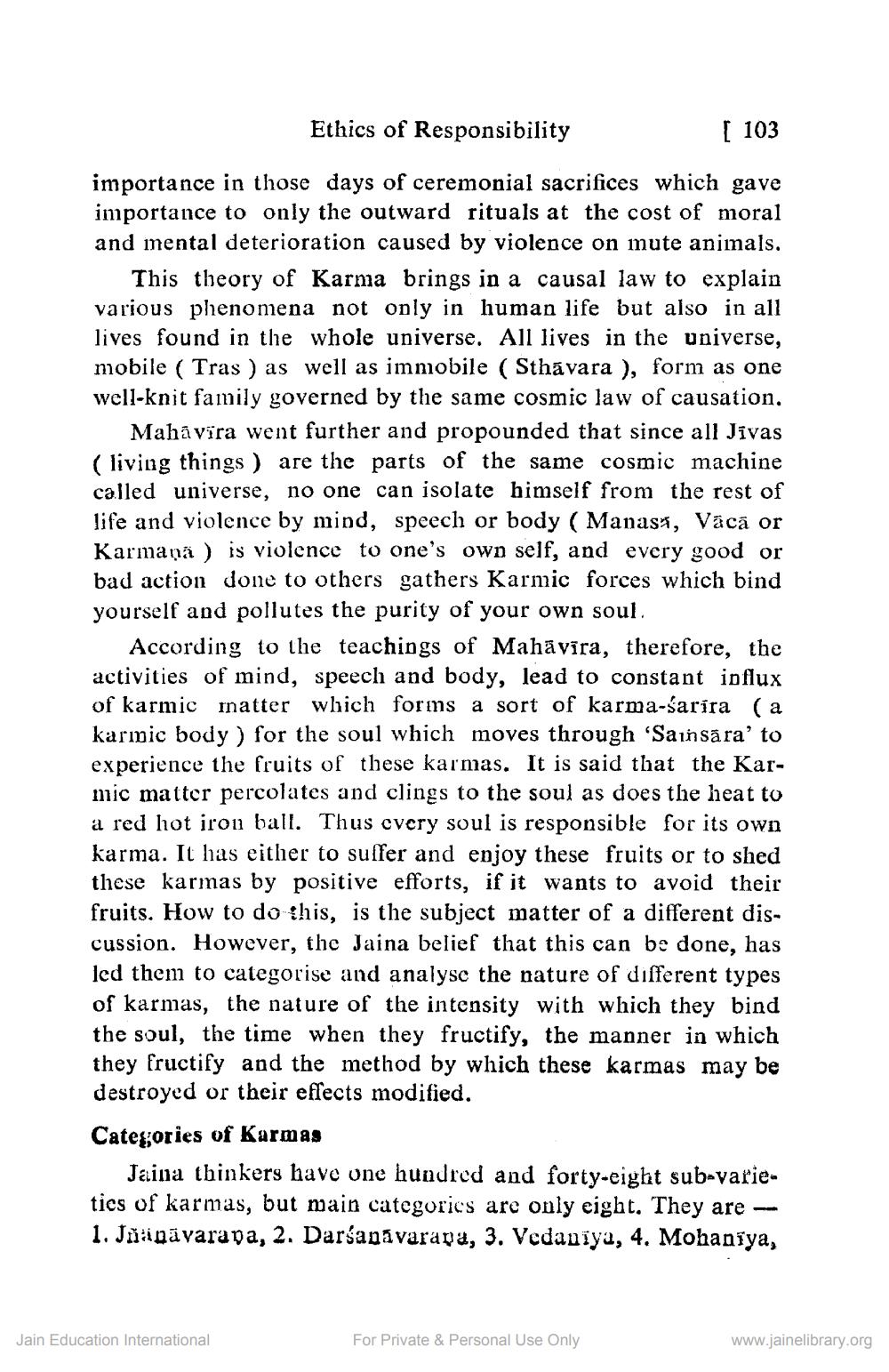________________
Ethics of Responsibility
[ 103
importance in those days of ceremonial sacrifices which gave importance to only the outward rituals at the cost of moral and mental deterioration caused by violence on mute animals.
This theory of Karma brings in a causal law to explain various phenomena not only in human life but also in all lives found in the whole universe. All lives in the universe, mobile (Tras ) as well as immobile (Sthāvara ), form as one well-knit family governed by the same cosmic law of causation.
Mahā vīra went further and propounded that since all Jivas ( living things) are the parts of the same cosmic machine called universe, no one can isolate himself from the rest of life and violence by mind, speech or body (Manasi, Vācā or Karmaņa ) is violence to one's own self, and every good or bad action done to others gathers Karmic forces which bind yourself and pollutes the purity of your own soul.
According to the teachings of Mahavira, therefore, the activities of mind, speech and body, lead to constant influx of karmic matter which forms a sort of karma-sarira (a karipic body) for the soul which moves through Sainsära' to experience the fruits of these karmas. It is said that the Karmic matter percolates and clings to the soul as does the heat to a red hot iron ball. Thus every soul is responsible for its own karma. It has either to suffer and enjoy these fruits or to shed these karmas by positive efforts, if it wants to avoid their fruits. How to do this, is the subject matter of a different discussion. However, the Jaina belief that this can be done, has led them to categorise and analyse the nature of different types of karmas, the nature of the intensity with which they bind the soul, the time when they fructify, the manner in which they fructify and the method by which these karmas may be destroyed or their effects modified. Categories of Karmas
Jaina thinkers have one hundred and forty-eight sub-varietics of karmas, but main categories are only eight. They are -- 1. Jaapävarapa, 2. Darśanavarapa, 3. Vedaniya, 4. Mohaniya,
Jain Education International
For Private & Personal Use Only
www.jainelibrary.org




